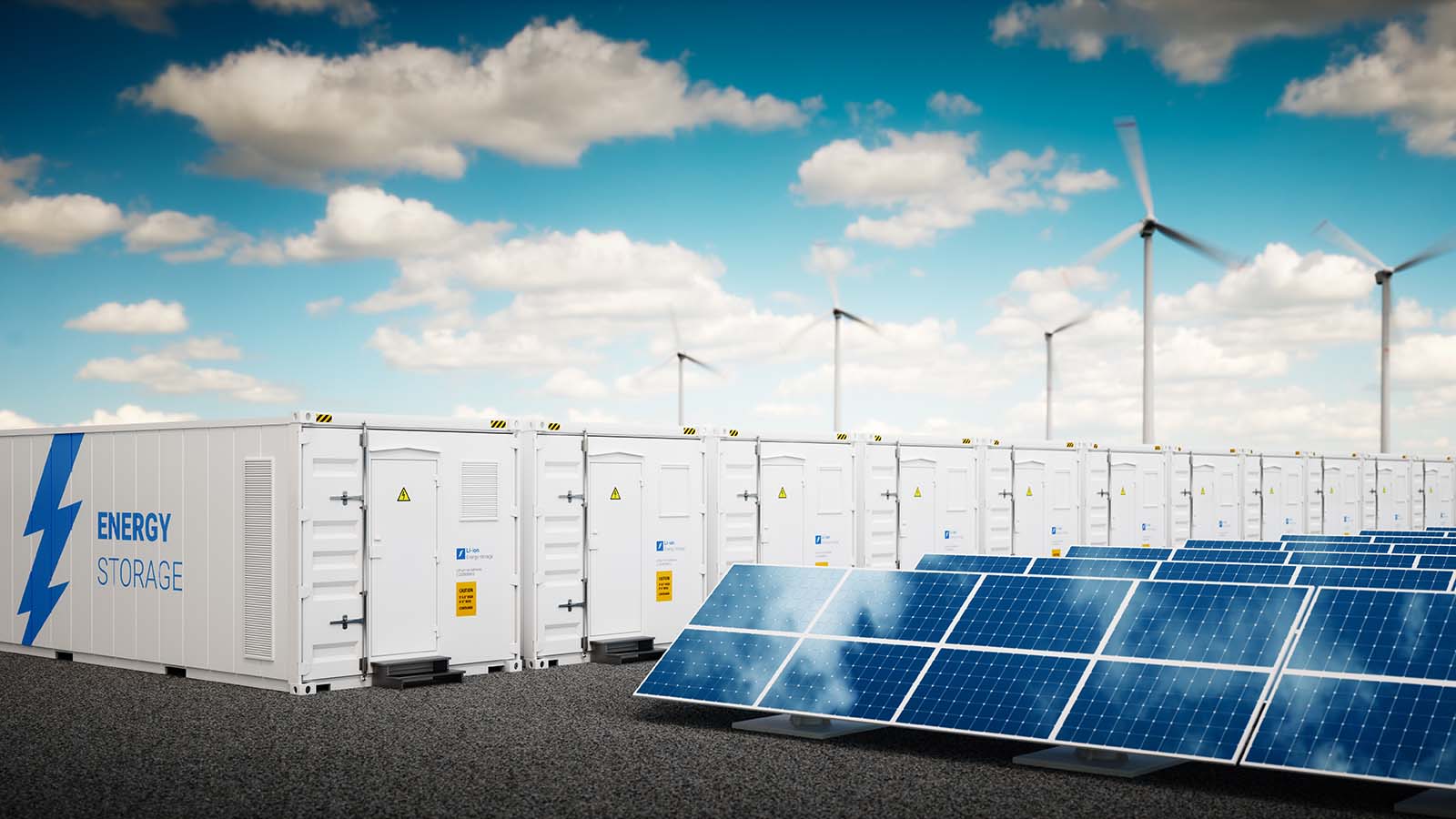Stem (NYSE:STEM) stock is trying to fulfill a concept born at the dawn of the renewable energy age.

Two decades ago, Al Gore called it the “enternet,” or energy internet. The idea is to connect small solar and wind projects to the grid, with intelligence that can maximize the resource.
Stem does this at the point of storage, usually a large utility battery farm. The software is called Athena. Athena creates networks from batteries, senses new supply and demand, then arbitrages among the grid, the batteries, and generators.
I wrote about this in April, when Stem was still a SPAC called Star Peak Energy Transition. At the time I recommended it for younger investors who can wait for their profit.
That’s still my call after second quarter results. Stem has a growing backlog of projects, but it’s still losing money.
What’s the Deal?
Stem is designed to manage energy demand “in front of the meter,” as in a project with ISO-NE, which manages electricity grids in New England. At the end of June Stem was managing over half of ISO-NE’s Massachusetts grid work, according to its second quarter earnings report. There’s a lot more to do.
Starting the system means that, for now, most revenue comes from hardware, and there isn’t much of it. Eventually, most of its revenue should come from subscriptions to the software, which is hosted at Amazon (NASDAQ:AMZN) Web Services.
Stem recorded revenue of just $19.3 million in the second quarter, an operating loss of $24 million, and a net loss of $100 million, or $1 per share. The loss is sustainable because the SPAC put cash on Stem’s balance sheet. There was $474 million of it there at the end of June.
But Stem is ramping up quickly. It estimates total 2021 revenue at $147 million. Half of that will come in the fourth quarter.
Analysts expect Stem to continue posting losses through next year, then start turning a profit in 2023. That’s based on a revenue growth rate of 69% per year.
Where’s STEM Stock?
Stem was “de-SPACed” on April 29. Since then, the stock has bounced around its initial price of $27 before a recent drop to its current level under $23. The company has a market cap of nearly $3 billion.
Our Mark Hake considers that a fair price for aggressive investors. He has estimated Stem’s value at over $42 per share, based on its growth rate and contracted backlogs. Stem’s second quarter report estimated its project backlog at $1.7 billion, with a contracted backlog worth $250 million.
Our Larry Ramer also put out a buy call on Stem based on first quarter results. The latest numbers shouldn’t do anything to change his mind, especially with the $3.5 billion infrastructure package, much of it going to climate, moving through Congress. TV analyst Jim Cramer also considers Stem a buy.
The Bottom Line
If you’re a young investor with patience, you should be slowly nibbling on Stem stock at times of weakness, like now.
The whole utility business is technologically backward. This was seen clearly during the winter storms in Texas, which nearly crashed the grid.
A 21st century modernization would logically use cloud software to arbitrage storage, generation, and demand. That’s what Stem is all about.
Stem won’t give your portfolio an immediate jolt. It will likely drift around its present price until the path to profit is clearer. But it seems to have enough cash to get there, and it won’t stop at break even.
On the date of publication, Dana Blankenhorn held a long position in AMZN. The opinions expressed in this article are those of the writer, subject to the InvestorPlace.com Publishing Guidelines.
Dana Blankenhorn has been a financial and technology journalist since 1978. He is the author of Living With Moore’s Law: Past, Present and Future available at the Amazon Kindle store. Write him at danablankenhorn@gmail.com or tweet him at @danablankenhorn. He writes a Substack newsletter, Facing the Future, which covers technology, markets, and politics.
